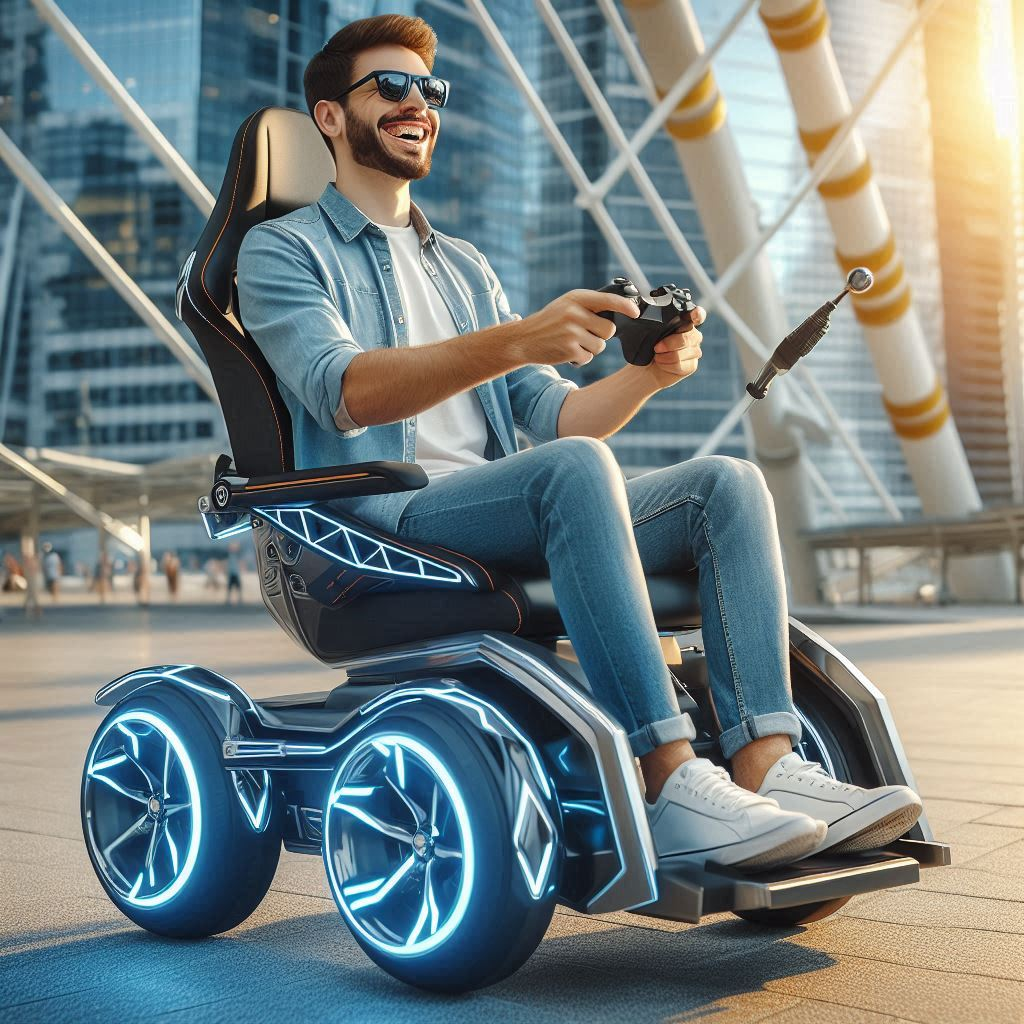
How Much Does a Power Chair Weigh?
Power chairs, also known as electric wheelchairs, come in all sorts of sizes and weights. If you’re thinking about getting one, you’ll want to know how heavy it is. Why? Well, the weight affects how easy it is to move around, put in your car, or store at home. In this guide, we’ll dive into the world of power chairs and their weights. We’ll look at different types, what makes them heavy or light, and how to pick the right one for you.
Quick Answer
Power chairs usually weigh between 33 pounds (15 kg) (that’s about as heavy as a young child) and 350 pounds (159 kg) (think of a big refrigerator). The lightest ones are for travel, and the heaviest are built for tough use.
Types of Power Chairs and Their Weights
Let’s break down the main types of power chairs and how much they typically weigh:
Travel Power Chairs
These are the lightweights of the power chair world. They’re made for folks who are always on the go. Most weigh between 33 and 60 pounds (15 to 27 kg). To give you an idea, that’s about as heavy as a medium-sized dog. The Feather Power Chair, for example, weighs just 33 pounds (15 kg). That’s super light! These chairs often fold up, making them perfect for tossing in the trunk of your car.
Full-Size Power Chairs
Full-size chairs are the all-rounders. They’re comfier than travel chairs but still manageable. They usually weigh between 100 and 200 pounds (45 to 91 kg). That’s like lifting a big dog or a small adult. Take the Compass Sport Power Wheelchair – it weighs about 157 pounds (71 kg) without batteries, and 200 pounds (91 kg) with them. These chairs strike a nice balance between being easy to use and having good features.
Heavy-Duty Power Chairs
These are the big guns. They’re built tough and can hold more weight. Most tip the scales at 200 to 350 pounds (91 to 159 kg) or more. That’s as heavy as a piano! The BOSS 6 Series Power Wheelchair, for instance, weighs around 350 pounds (159 kg). But it can support up to 600 pounds (272 kg), which is great for larger folks or those who need extra sturdy chairs.
Folding Power Chairs
Folding chairs are like the Swiss Army knives of power chairs. They try to give you the best of both worlds – light enough to move around, but with some of the features of bigger chairs. They usually weigh between 50 and 150 pounds (23 to 68 kg). The Merits Health P183 is a good example. It weighs about 150 pounds (68 kg) but can fold up for easier storage.
What Makes a Power Chair Heavy or Light?

Ever wonder why some power chairs weigh more than others? It’s not just random. Here are the main things that affect a chair’s weight:
Batteries
Batteries are often the heaviest part of a power chair. Most chairs use one of two types:
- Lead-acid batteries: These are the old-school type. They’re heavy – one battery can weigh 30 to 50 pounds (14 to 23 kg). That’s like carrying a small child!
- Lithium-ion batteries: These are the new kids on the block. They’re much lighter, usually 10 to 20 pounds (4.5 to 9 kg) each. They’re becoming more popular because they’re easier to handle.
Frame Material
The frame is like the skeleton of the chair. Different materials weigh different amounts:
- Aluminum: This is light stuff. An aluminum frame might weigh 20 to 30 pounds (9 to 14 kg).
- Steel: Steel is heavier but tougher. A steel frame could weigh 40 to 60 pounds (18 to 27 kg).
- Titanium: This is the fancy option. It’s strong like steel but light like aluminum. It’s not as common because it’s expensive.
Seats and Extra Stuff
The seat and any extras you add can make your chair heavier:
- A basic seat might not add much weight.
- But a seat that can recline or lift up could add 20 to 40 pounds (9 to 18 kg).
- Things like baskets, oxygen tank holders, or big wheels all add weight too.
Real-Life Story: Finding the Right Weight
Let me tell you about my neighbor, Sarah. She’s in her 60s and recently needed a power chair after a hip surgery. At first, she bought a big, comfy chair that weighed about 200 pounds (91 kg). She thought bigger was better. But oh boy, was she wrong!
Sarah lives alone in a small apartment. She quickly realized she couldn’t move the chair around by herself. Getting it in and out of her daughter’s car for doctor visits was a nightmare. It was so heavy that her daughter almost hurt her back trying to lift it!
After a few weeks of struggle, Sarah decided to switch to a lighter chair. She got a folding model that weighed just 55 pounds (25 kg). What a difference! Now she can fold it up and put it in the car herself. She can even move it around her apartment without help.
Sarah told me,
“I never thought the weight of my chair would matter so much. But now I can go places on my own again. I feel like I got my independence back!”
Sarah’s story shows why it’s so important to think about weight when choosing a power chair. It’s not just a number – it can really affect your daily life.
How Weight Affects How Your Chair Moves
The weight of your power chair doesn’t just matter when you’re lifting it. It also changes how the chair moves around:
- Light chairs: These are zippy! They turn on a dime and are great for tight spaces like narrow hallways or small rooms. But they might feel a bit bumpy on rough ground.
- Heavy chairs: These are like smooth-riding boats. They feel stable and can handle bumpy sidewalks better. But they might be trickier to maneuver in tight spots.
Think about where you’ll use your chair most. If you’re mostly indoors, a lighter chair might be best. If you like to go to the park or on rougher paths, a heavier chair could be more comfortable.
Weight of the Chair vs. How Much Weight It Can Hold
Here’s something important to remember: a chair’s weight and how much weight it can hold are two different things. For example:
- A light travel chair might weigh 40 pounds (18 kg) but only hold up to 250 pounds (113 kg).
- A heavy-duty chair could weigh 300 pounds (136 kg) but hold up to 600 pounds (272 kg) or more.
Always check both numbers. Make sure the chair can support you comfortably, but also that you can handle its weight.
Keeping Your Chair in Good Shape
The weight of your chair can affect how much care it needs:
- Heavier chairs: These might need more frequent check-ups. The motors and moving parts work harder to move all that weight.
- Lighter chairs: These are usually easier to maintain. But you need to be careful not to bump them around too much, as they might not be as sturdy.
No matter what kind of chair you have, regular maintenance is key to keeping it running smoothly.
Wrapping It Up
So, how much does a power chair weigh? Now you know it can be anywhere from as light as a child to as heavy as a piano! The weight of your chair is super important. It affects how you use it every day, how you transport it, and even how it feels to ride in.
Remember:
- Travel chairs are lightest (33-60 pounds / 15-27 kg)
- Full-size chairs are in the middle (100-200 pounds / 45-91 kg)
- Heavy-duty chairs are the heaviest (200-350+ pounds / 91-159+ kg)
When you’re picking out a power chair, think about:
- How you’ll move it around
- Where you’ll use it most
- How much support you need
The perfect chair for you balances weight with the features you need. It should make your life easier, not harder. Take your time, try out different options, and find the chair that feels just right. Your perfect power chair is out there, ready to help you zoom through life with ease!
| Type | Weight Range | Example |
|---|---|---|
| Travel Power Chairs | 33-60 pounds (15-27 kg) | Feather Power Chair (33 pounds / 15 kg) |
| Full-Size Power Chairs | 100-200 pounds (45-91 kg) | Compass Sport (157-200 pounds / 71-91 kg) |
| Heavy-Duty Power Chairs | 200-350+ pounds (91-159+ kg) | BOSS 6 Series (350 pounds / 159 kg) |
| Folding Power Chairs | 50-150 pounds (23-68 kg) | Merits Health P183 (150 pounds / 68 kg) |


Leave a Reply